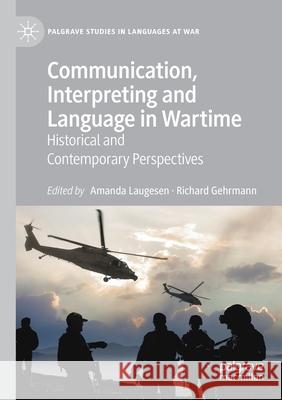Communication, Interpreting and Language in Wartime: Historical and Contemporary Perspectives » książka
topmenu
Communication, Interpreting and Language in Wartime: Historical and Contemporary Perspectives
ISBN-13: 9783030270391 / Angielski / Miękka / 2020 / 269 str.
Communication, Interpreting and Language in Wartime: Historical and Contemporary Perspectives
ISBN-13: 9783030270391 / Angielski / Miękka / 2020 / 269 str.
cena 564,88
(netto: 537,98 VAT: 5%)
Najniższa cena z 30 dni: 539,74
(netto: 537,98 VAT: 5%)
Najniższa cena z 30 dni: 539,74
Termin realizacji zamówienia:
ok. 16-18 dni roboczych.
ok. 16-18 dni roboczych.
Darmowa dostawa!
Kategorie:
Kategorie BISAC:
Wydawca:
Palgrave MacMillan
Seria wydawnicza:
Język:
Angielski
ISBN-13:
9783030270391
Rok wydania:
2020
Wydanie:
2020
Numer serii:
000447246
Ilość stron:
269
Waga:
0.34 kg
Wymiary:
21.01 x 14.81 x 1.52
Oprawa:
Miękka
Wolumenów:
01
Dodatkowe informacje:
Wydanie ilustrowane











